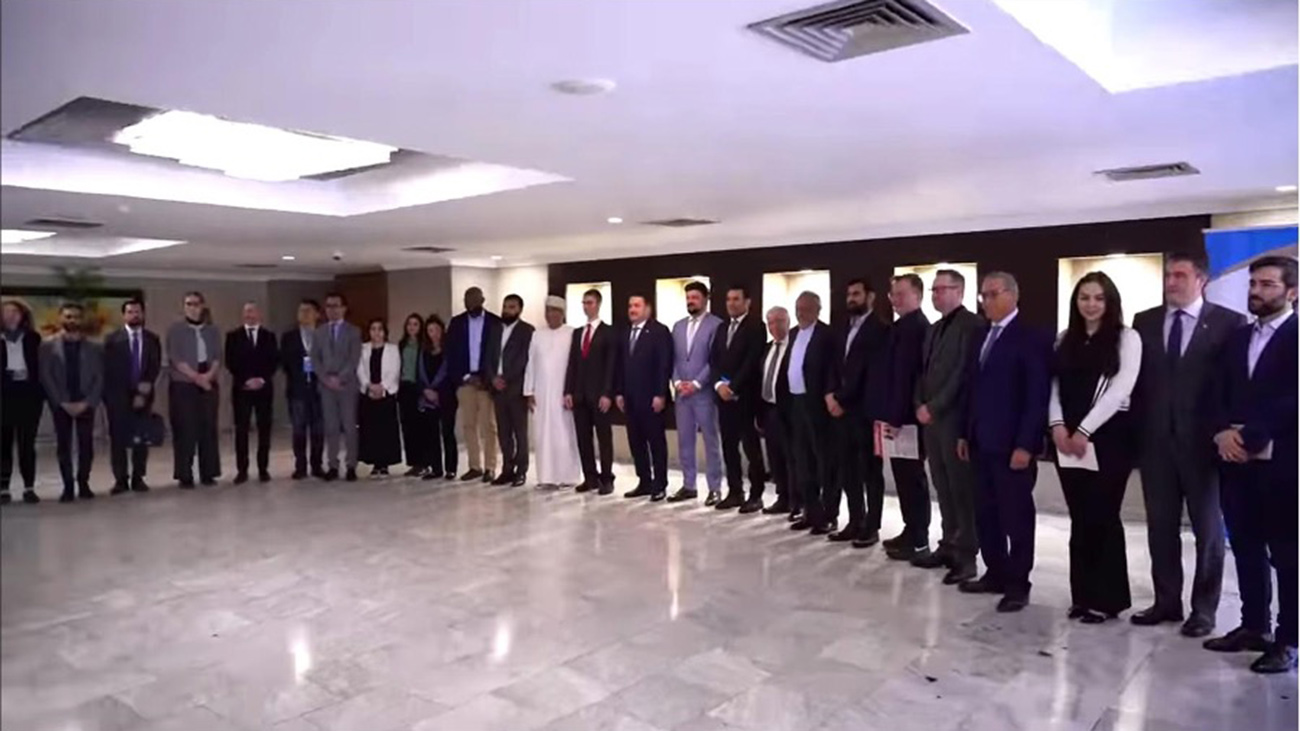
During a three-day conference in Baghdad entitled “Baghdad Dialogue: Exploring Regional Connectivity” organized by the Iraqi Institute for Dialogue and the Centre for Applied Research in Partnership with the Orient (CARPO, Germany), IPI MENA Senior Director Nejib Friji emphasized the strong need for regional cooperation towards building peace and security.
During the participants’ discussions with Iraqi President H.E Abdul Latif Rashid and Iraqi Prime Minister Mohammed Shia’ Al Sudani, Mr. Friji highlighted the role of Iraq in bringing together neighboring countries to reinforce regional integration which in turn will ensure a more stable, prosperous, and interconnected region, building up on the Development Road project that would boost trade and exchanges between Iraq, Iran, Turkey, and other Mideast Countries.
He stressed a home-grown framework in which conflict would be handled from a preventive approach as a logical result of interconnectedness and melding of countries’ political, economic, and social domains.
In a bilateral meeting with Sheikh Humam Hammoudi, Leader of the Islamic Supreme Council of Iraq, former First Deputy Speaker of the Parliament and Chairman of the Constitutional Drafting Committee, Mr. Friji stressed the critical importance of regional development projects that would cement ties of interdependence cooperation. The Development Road Project qualifies to bolster connectivity via economic and infrastructure linkages between Asia and Europe.
Building on the rapprochement between Saudi Arabia and Iran, Mr. Friji highlighted Iraq’s opportunities in partnering with the GCC, Levant, North Africa, and beyond for long-term regional integration based on human development strategy.
Mr. Friji also met with the Climate Envoy of Iraq and Advisor to the Prime Minister on Climate Change & Sustainable Development, Fareed Yasseen, to explore future opportunities for cooperation and build-up following COP27 in Cairo and COP28 in the United Arab Emirates.
He also underlined the need to tap into the technological developments of the twenty-first century during discussions with the CEO of Earthlink, Alaa Jasim Moussa, stressing the role of communications and tele-corporations in bringing nations together in the region via interlinkage of networks.
Speaking on a panel entitled “Regional Approaches Towards Human Security, Conflict Resolution & Reconciliation” during the second day of the conference, Mr. Friji pointed to water as a critical tool for regional peace and stressed the importance of the water-climate-agriculture nexus.
“Climate change poses additional pressures to an evolving context. The MENA region has the most expected economic losses from climate-related water scarcity, projected at 14% of its GDP by 2050,” he stated.
He also highlighted energy as a cornerstone of any regional integration project. “The transition of renewable energy will bring together the oil-producing and non-oil-producing; it will consolidate the interdependence that will boost the economy, trade, and infrastructure ties across countries in the region,” he underlined.
He concluded his remarks by pointing to mechanisms for conflict prevention: “Within each academic and higher education institution, we must have think tanks and research centers in place that would groom the future generations on management, good governance, and law frameworks,” he stressed. “Planting the seeds for critically aware youth means that we can better equip judiciary systems which contribute to fair dispute resolution, upholding rights, and further building citizen-state trust, social stability, and peace.”







